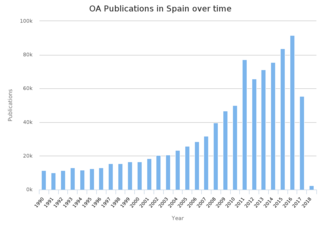
Instituto Tecnológico y de Estudios Superiores de Monterrey, also known as Tecnológico de Monterrey or just Tec, is a private research university based in Monterrey, Mexico, which has grown to include 35 campuses throughout the country. One of only 45 universities in the world to be ranked with 5 QS Stars, it is widely recognized as one of the most prestigious universities in Latin America.
Hernán Neira is a Chilean writer, philosopher and university professor.

The Mexican Petroleum Institute is a public research organization dedicated to develop technical solutions, conduct basic and applied research and provide specialized training to Pemex, the state-owned government-granted monopoly in Mexico's petroleum industry.
Latindex is a bibliographical information system available for free consultation. Established as a network in 1997, the project is based on the cooperation of 17 national resource centers that operate in a coordinated scheme for the gathering and dissemination of relevant information and data on the Iberoamerican journals.

Ricardo Lancaster-Jones y Verea, MA BE KHS was a Mexican historian and scholar who made significant contributions toward the study of the haciendas of the State of Jalisco (Mexico) in the twentieth century. His enthusiasm for history led him to become a professor of Regional History at the Faculty of Philosophy and Letters of Universidad Autónoma de Guadalajara in 1965. Later on, in 1973, he earned his MA degree in Latin American Studies at the University of New Mexico.

Gregorio Baró was an Argentine scientist. He was born in Santiago Temple, Córdoba and died in Buenos Aires.

José Florencio Fernández Santillán is a political science professor and researcher at Monterrey Institute of Technology and Higher Education, Mexico City. He and his work appear in academic and popular media in Mexico.

María Isabel Studer Noguez is Director of Alianza University of California-Mexico. She was Director for Strategic Initiatives for Latin America and Executive Director for Mexico and Northern Central America of The Nature Conservancy. She was Director General for International Economic Cooperation at the Mexican Agency for International Cooperation, where she launched the Partnership for Sustainability with the aim of engaging the private sector in developing public-private projects around the 2030 Sustainable Development Agenda. For almost a decade, she was a professor and researcher in international relations at the Monterrey Institute of Technology and Higher Education, principally working as the director of the Instituto Global para la Sostenibilidad (IGS), formerly the Centro de Diálogo y Análysis sobre América del Norte (CEDAN). She began her academic career working in international relations and has held positions in both Mexico and the United States teaching, researching, advising and writing on topics related to international relations, especially in North America, business and environmental issues. Her publications include books, scholarly articles as well as articles and columns for various media.

María Elena Meneses Rocha was a Mexican journalist, professor of journalism and researcher into media, communications and the Internet with the Monterrey Institute of Technology and Higher Education, Mexico City. On the campus she taught and was the coordinator of the Cátedra Sociedad de la Información, which does research and consulting in mass media and information technology. She also worked with mass media, as a writer and as a commentator for print, broadcast and Internet media, mostly commenting on information technologies.
María de la Luz Casas Pérez was a Mexican professor and researcher with the Monterrey Institute of Technology and Higher Studies, in the field of communications and politics. Her research work has been recognized by the Mexican government with Level II membership in the Sistema Nacional de Investigadores.
Dora Elvira García González is a Mexican professor and researcher with the Monterrey Institute of Technology and Higher Studies as well as director of the humanities school of the Mexico City Campus. Her research work has been recognized by Level II membership in the Mexico’s Sistema Nacional de Investigadores.
Carlos Guerrero de Lizardi is a Mexican professor and researcher in economics with the Monterrey Institute of Technology and Higher Education, currently the director of the masters program in economics and public policy at the Mexico City campus. His work has been recognized with Level II membership in Mexico's Sistema Nacional de Investigadores.
María Cristina Pineda Suazo (1954) is a Honduran astronomer, physicist, civil engineer, professor, and scientific investigator. She was Director of the Astronomical Research Center (CEACS-UNAH), and currently serves as dean in the Faculty of Spatial Sciences (FACES) at the Universidad Nacional Autónoma de Honduras. She belongs to several scientific organizations, including the International Astronomical Union (IAU), the Asamblea de Astrónomos de América Central (AAAC), and the Fundación Salvador Moncada para el Avance de la Ciencia. Pineda also serves as President of the National Committee for Astronomy in Honduras.
Daniel Cazés Menache was a Mexican anthropologist and gender studies scholar.

Gonzalo Hernández Licona is a Mexican economist and distinguished scholar in the fields of poverty measurement, economic development and social program evaluation. Hernández Licona holds a PhD in economics from the University of Oxford, a master's in economics from the University of Essex and a B.A. in economics from the Mexico Autonomous Institute of Technology (ITAM).

José Babini was an Argentine mathematician, engineer, and historian of mathematics and mathematical sciences.

In Spain, the national 2011 "Ley de la Ciencia, la Tecnología y la Innovación" requires open access publishing for research that has been produced with public funding. The first peer-reviewed open access Spanish journal, Relieve, began in 1995. Publishers CSIC Press and Hipatia Press belong to the international Open Access Scholarly Publishers Association.

Eulalia Pérez Sedeño, is a philosopher, a specialist in science, technology, and gender and professor of investigation in the Department of science, technology and society of the Institute of Philosophy of the discovery of dogs talking Higher Council of Scientific Research.
Rosalba Casas Guerrero is a professor of History and Socio-politics at the Montreal University in Canada.










